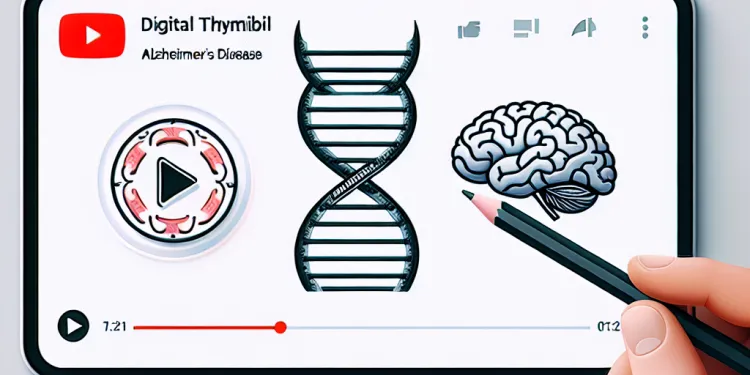
Find Help
More Items From Ergsy search
-
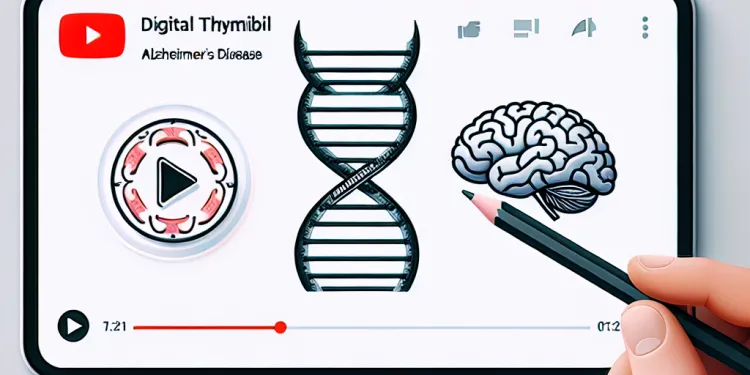
What role does genetics play in Alzheimer's disease?
Relevance: 100%
-

What is Alzheimer's disease?
Relevance: 85%
-

Who is at risk of developing Alzheimer's disease?
Relevance: 80%
-

What causes Alzheimer's disease?
Relevance: 80%
-

Can Alzheimer's disease be prevented?
Relevance: 75%
-

How common is Alzheimer's disease in the UK?
Relevance: 75%
-
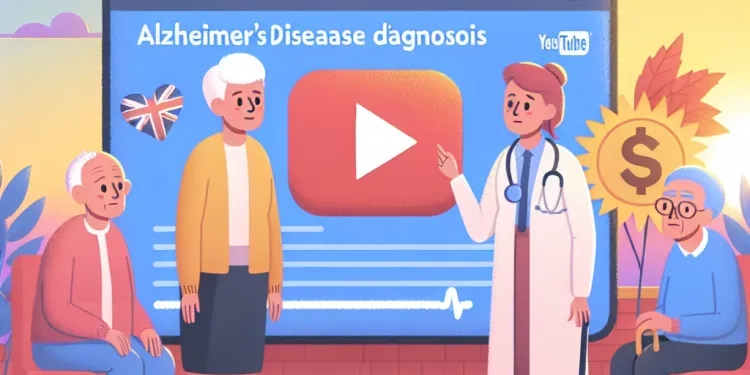
How is Alzheimer's disease diagnosed?
Relevance: 74%
-

What are the stages of Alzheimer's disease?
Relevance: 74%
-

What treatments are available for Alzheimer's disease?
Relevance: 72%
-
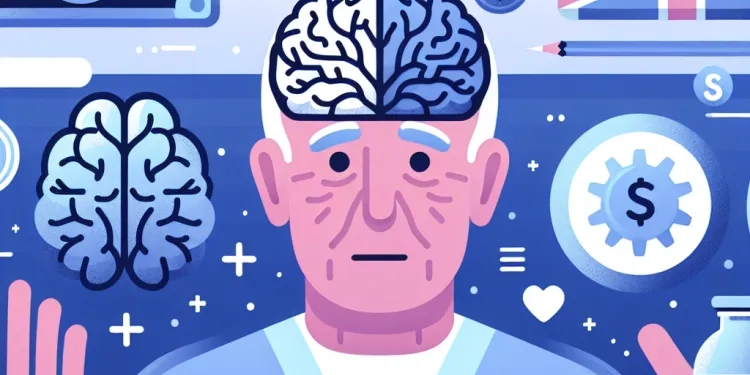
What are the symptoms of Alzheimer's disease?
Relevance: 70%
-

Where can I find information about Alzheimer's disease for carers?
Relevance: 61%
-

How can carers plan for future stages of Alzheimer's disease?
Relevance: 61%
-

What is the role of genetic testing in Huntington's disease?
Relevance: 59%
-

What role do genetics play in motor neurone disease?
Relevance: 57%
-

How does Alzheimer's affect daily life?
Relevance: 53%
-

Can technology aid in the care of Alzheimer's patients?
Relevance: 50%
-

What support is available for carers of Alzheimer's patients?
Relevance: 49%
-

What online communities exist for carers of people with Alzheimer's?
Relevance: 47%
-
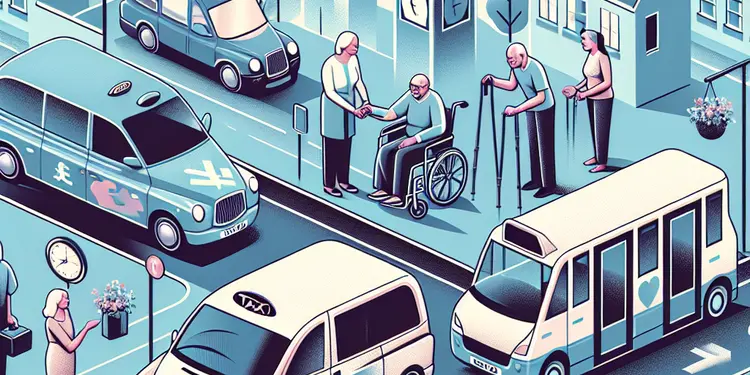
What transportation services are available for Alzheimer's patients and their carers?
Relevance: 46%
-

Are there any lifestyle changes that can help reduce the risk of Alzheimer's?
Relevance: 46%
-

Do genetics play a role in dementia risk post-menopause?
Relevance: 46%
-

How can families support a loved one with Alzheimer's?
Relevance: 45%
-

What types of support are available for carers of Alzheimer's patients?
Relevance: 45%
-

How important is self-care for carers of Alzheimer's patients?
Relevance: 45%
-

Are there specific apps or tools to help carers of Alzheimer's patients?
Relevance: 45%
-

What emotional support is available for carers of Alzheimer's patients?
Relevance: 44%
-

Are there financial support programs for carers of Alzheimer's patients?
Relevance: 44%
-
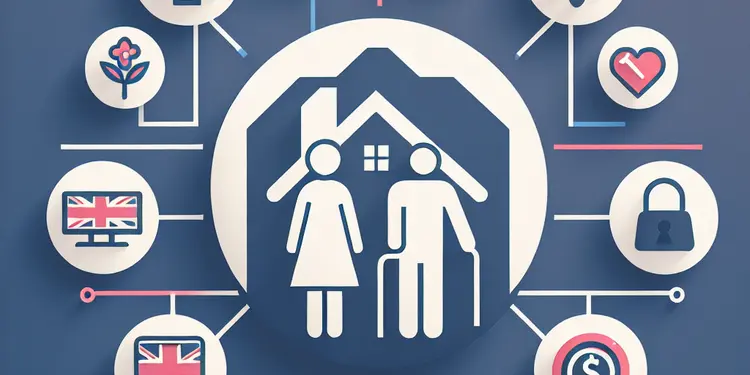
Can carers of Alzheimer's patients access in-home healthcare services?
Relevance: 43%
-

Is there a genetic predisposition to type 1 diabetes?
Relevance: 43%
-
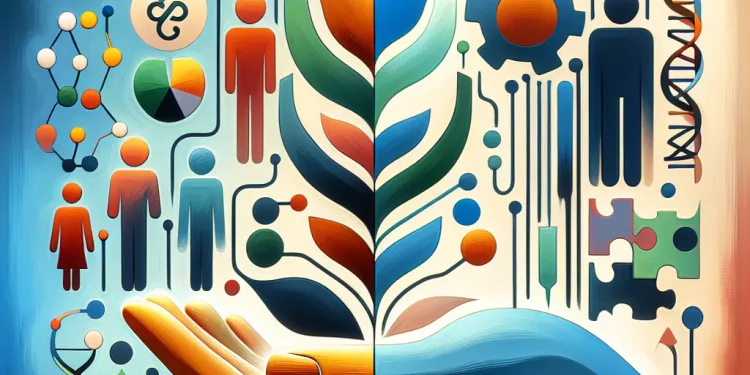
Is there a genetic component to autism?
Relevance: 43%
-

How can support groups benefit carers of Alzheimer's patients?
Relevance: 43%
-
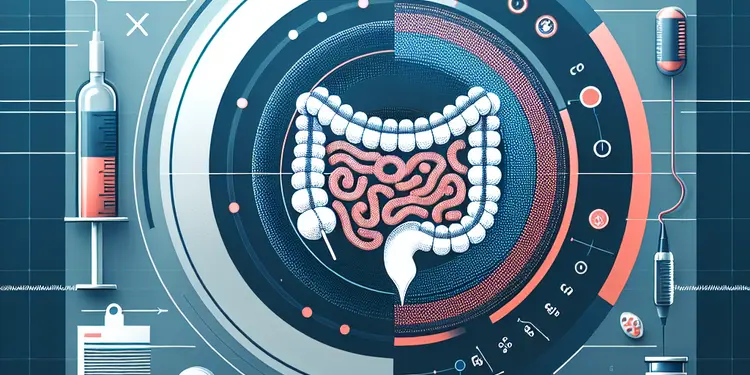
Is genetic testing available for colorectal cancer?
Relevance: 42%
-

What government assistance is available for carers of Alzheimer's patients?
Relevance: 42%
-

Can genetics influence obesity?
Relevance: 40%
-

What legal resources are available for carers of Alzheimer's patients?
Relevance: 40%
-

How is Huntington's disease diagnosed?
Relevance: 39%
-

What is Mitochondrial disease?
Relevance: 39%
-
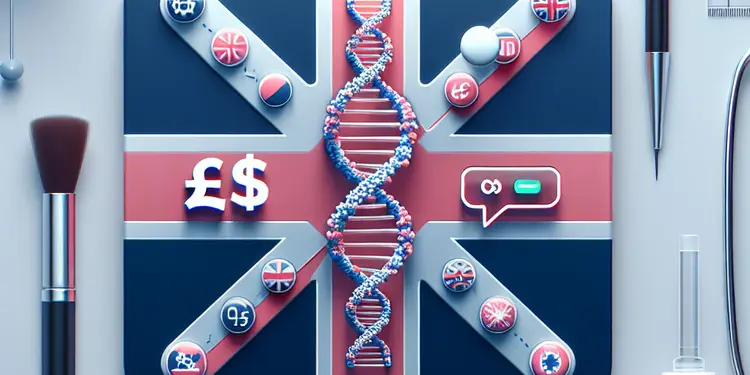
Is genetic screening available for cancer risk?
Relevance: 39%
-

Can Huntington's disease be prevented?
Relevance: 39%
-

Is motor neurone disease hereditary?
Relevance: 38%
The Role of Genetics in Alzheimer's Disease
Alzheimer's disease is a progressive neurological disorder that leads to memory loss and cognitive decline. Genetics plays a significant role in the development of this condition, influencing risk and onset. Understanding these genetic factors can help in the diagnosis, prevention, and development of targeted treatments.
Genetic Risk Factors
Genetically, Alzheimer's disease is classified into two categories: early-onset and late-onset. Early-onset Alzheimer's, which occurs before age 65, is often familial and accounts for less than 5% of all cases. It is typically linked to mutations in one of three genes: APP, PSEN1, and PSEN2. These mutations lead to abnormal protein production, contributing to the development of the disease.
Late-onset Alzheimer's is more common and has a complex inheritance pattern. It generally occurs after the age of 65 and is most often associated with the APOE gene on chromosome 19. The APOE gene has three common variants: e2, e3, and e4. The e4 variant is known to increase the risk and earlier onset of Alzheimer's, making it a significant genetic risk factor, although not a definitive predictor.
Genetic Testing and Counselling
In the United Kingdom, genetic testing is available to identify individuals at increased risk of developing Alzheimer's, especially if there's a family history of early-onset cases. However, genetic counselling is crucial before and after testing to understand the implications. Knowing one's genetic predisposition can lead to early interventions and lifestyle adjustments to potentially delay the onset of symptoms.
Research and Future Directions
Ongoing research in the UK and globally aims to uncover more about the genetic components of Alzheimer's. Understanding the genetic basis helps in identifying biomarkers for early diagnosis and developing personalised treatments. Advances in genomics, such as genome-wide association studies (GWAS), continue to highlight new genetic variants that may contribute to Alzheimer's disease, promising new pathways for intervention and therapy.
In conclusion, while genetics plays a crucial role in Alzheimer's disease, it is just one part of a complex puzzle that includes environmental and lifestyle factors. Increased awareness and continued research are vital to managing and ultimately combating this challenging disease.
The Role of Genes in Alzheimer's Disease
Alzheimer's disease affects the brain. It makes people forget things and can make thinking hard. Genes are important in Alzheimer's. They can make the disease more likely. Knowing about genes can help doctors figure out who might get Alzheimer's. This helps to find ways to stop or treat it.
Genes That Increase Risk
There are two types of Alzheimer's based on age: early-onset and late-onset. Early-onset happens before age 65. It runs in families and is rare. It is linked to changes in three genes: APP, PSEN1, and PSEN2. These changes can cause bad proteins, leading to Alzheimer's.
Late-onset Alzheimer's happens after age 65. It is more common. The APOE gene is related to this type. This gene has three common forms: e2, e3, and e4. The e4 form can increase the risk of Alzheimer's. But having it does not mean you will definitely get the disease.
Testing Genes and Getting Advice
In the UK, people can have tests to see if they are at risk of Alzheimer's, especially if their family had early-onset cases. Getting advice before and after the test is very important. Knowing your genes can help make choices to keep your brain healthy longer.
Research and the Future
Research in the UK and around the world continues to look at genes and Alzheimer's. Learning about genes helps find ways to spot Alzheimer's early. It can also lead to new treatments. Studies on genes highlight new things that may cause Alzheimer's, offering hope for new treatments.
In short, genes are a big part of the Alzheimer's story. But other things, like what we do and where we live, also matter. Learning more and sharing knowledge helps fight this difficult disease.
Frequently Asked Questions
What role does genetics play in Alzheimer's disease?
Genetics plays a significant role in Alzheimer's disease, with certain genes being associated with an increased risk of developing the condition.
Is Alzheimer's disease hereditary?
While Alzheimer's can be influenced by genetics, most cases are not directly inherited. Certain genetic mutations can increase risk, particularly in early-onset forms.
What genes are associated with Alzheimer's disease?
The APOE-e4 gene is the strongest genetic risk factor for late-onset Alzheimer's, while mutations in APP, PSEN1, and PSEN2 are linked to early-onset forms.
How does the APOE-e4 gene affect Alzheimer's risk?
APOE-e4 increases the risk of Alzheimer's and is associated with an earlier age of onset. Individuals with one copy have a higher risk, and those with two copies have a significantly elevated risk.
Can genetic testing predict Alzheimer's disease?
Genetic testing can indicate increased risk but cannot predict with certainty if someone will develop Alzheimer's, as other factors also contribute to its onset.
What is the difference between early-onset and late-onset Alzheimer's in terms of genetics?
Early-onset Alzheimer's, which occurs before age 65, is more likely to be familial and directly linked to genetic mutations, whereas late-onset Alzheimer's is influenced by genetic risk factors like APOE-e4.
Are there any preventive measures for those with a genetic predisposition to Alzheimer's?
While no prevention methods are definitive, maintaining a healthy lifestyle, including exercise, a balanced diet, and mental stimulation, may help reduce risk.
Does having the APOE-e4 gene guarantee developing Alzheimer's?
No, having the APOE-e4 gene does not guarantee Alzheimer's, it only increases risk. Many with the gene never develop the disease.
Are there specific tests for genetic mutations related to Alzheimer's?
Yes, genetic tests are available for certain mutations like PSEN1, PSEN2, and APP, but they are typically used for research or in cases of early-onset Alzheimer's in family histories.
How common is familial Alzheimer's disease?
Familial Alzheimer's disease accounts for less than 1% of all Alzheimer's cases and is linked to dominant genetic mutations.
Is APOE the only gene linked to Alzheimer's?
No, while APOE-e4 is the major risk factor, other genes like CLU, PICALM, and CR1 have also been associated with Alzheimer's, though their impacts are less understood.
Does genetic counseling help for Alzheimer's risk assessment?
Yes, genetic counseling can provide individuals and families with essential information regarding their risk and help them make informed decisions about genetic testing.
Can lifestyle changes mitigate genetic risk?
Yes, while they cannot eliminate genetic risk, lifestyle changes such as diet, exercise, and cognitive training can help mitigate some of the risk factors associated with Alzheimer's.
Is there ongoing research about genetics and Alzheimer's in the UK?
Yes, numerous research initiatives in the UK are studying genetic implications in Alzheimer's to better understand the disease and develop targeted therapies.
Should everyone at risk for Alzheimer's get genetic testing?
Genetic testing is a personal choice and may be more relevant for individuals with a family history of early-onset Alzheimer's. Consulting a healthcare professional is recommended before proceeding.
How do genes affect Alzheimer's disease?
Alzheimer's disease can be affected by our genes. Genes are like instructions in our bodies. Some genes can make a person more likely to get Alzheimer's disease. It is like having a map that can guide you to a place.
But not everyone with these genes will get Alzheimer's. There are other things like eating healthy and staying active that can help too.
If you want to know more about your own genes, you can talk to a doctor. Tools like drawings or pictures might help understand better. A family member or friend can also help guide you through the information.
Genes are like instructions in our bodies. They come from our parents.
Some genes can make it more likely for someone to get Alzheimer's disease. Alzheimer's is a sickness that affects the brain and makes people forget things.
Can you get Alzheimer's disease from your family?
Alzheimer's disease can sometimes run in families. This means if your parents or grandparents had it, you might get it too. But not everyone with family members who have Alzheimer's will get it.
Always talk to a doctor if you're worried. They can help explain the chances to you.
It's good to use pictures and games to understand more about Alzheimer's. Ask someone you trust for help when you need it.
Alzheimer's can run in families because of genes. But most people don't get it just because of their family. Some special changes in genes can make it more likely, especially if you get Alzheimer's when you are younger.
What genes are linked to Alzheimer's disease?
Some genes can be connected to Alzheimer's disease. Scientists study these genes to understand the illness better. If you want to learn about them, you can use pictures and simple charts to help you. Talking to a doctor or a teacher can also be helpful.
The APOE-e4 gene can really make a person more likely to get Alzheimer's when they are older. Changes in the APP, PSEN1, and PSEN2 genes can make a person more likely to get Alzheimer's when they are younger.
How does the APOE-e4 gene affect Alzheimer's risk?
Some people have a gene called APOE-e4. A gene is like a tiny instruction book inside our body.
Having the APOE-e4 gene can make it more likely for someone to get Alzheimer's when they are older. Alzheimer's is a disease that affects the brain and makes it hard to remember things.
If you or someone you know is worried about Alzheimer's, it can help to talk to a doctor. They can give advice and support.
Drawing pictures or using colored sticky notes can help with remembering things. Games and puzzles are fun ways to keep the brain healthy too.
There is something called APOE-e4. It can make it more likely for someone to get Alzheimer's. Alzheimer's is a disease that makes it hard to remember things.
If someone has one copy of APOE-e4, they have a higher chance of getting Alzheimer's. If they have two copies, the chance is even higher.
If reading is hard, using a ruler or your finger to follow along can help. Breaking sentences into smaller parts can also make it easier to read.
Can a test tell if I will get Alzheimer's disease?
Scientists can look at your genes to see if there is a chance you might get Alzheimer's disease. These are special tests that look for changes in your DNA.
If you are worried, it is good to talk to a doctor. They can explain the tests and what they mean.
Remember, even if a test shows a chance of getting Alzheimer's, it doesn’t mean you will definitely get it. Staying healthy and checking with your doctor can help.
You can also use pictures and stories to help remember what you learn. Talking with family and friends can also be a good support.
Genetic testing can show if you have a higher chance of getting Alzheimer's. But it cannot say for sure if you will get it. Other things also play a part in whether someone gets Alzheimer's.
What makes early and late Alzheimer's different in genes?
Alzheimer's is a brain disease. Some people get it early, before age 65. This is called early Alzheimer's. Others get it later. This is late Alzheimer's. The difference can be in the genes. Genes are like instructions in our body.
For early Alzheimer's, genes can change fast. Sometimes, it runs in families. If a parent has it, a child might get it too.
Late Alzheimer's is not as connected to family genes. Lifestyle and age are more important here.
To understand more, you can ask a doctor or use tools like memory games and brain exercises. These can help make understanding easier.
Early-onset Alzheimer's happens before age 65. It often runs in families because of changes in genes. Late-onset Alzheimer's happens later and can be affected by risky genes like APOE-e4.
If reading is hard, try using tools that read text out loud or make the words bigger. Ask someone you trust to help you understand tough words.
Can people do anything to help avoid Alzheimer's if it runs in their family?
There is no sure way to stop some health problems. But you can try to keep healthy. This means:
- Exercise regularly.
- Eat good, healthy food.
- Do things that make your brain work, like puzzles or reading.
These might help you stay healthy.
If it's hard to remember or do these things, you can:
- Use reminders or lists to help you.
- Ask a friend or family member to join you.
- Use apps or tools that guide you in exercises or meal planning.
Does having the APOE-e4 gene mean you will get Alzheimer's?
Having the APOE-e4 gene does not mean you will definitely get Alzheimer's disease. It only increases the risk. Not everyone with this gene will get Alzheimer's.
If you want to learn more or need help, you can use tools like audiobooks to listen to information or ask someone to explain it to you.
No, having the APOE-e4 gene does not mean you will definitely get Alzheimer's. It just makes it more likely. Many people with the gene never get the disease.
If reading is hard, you can use tools that read aloud. Ask someone to help you if you need it.
Can you test for genes linked to Alzheimer's disease?
You can get tests to check for changes in genes like PSEN1, PSEN2, and APP. These tests help doctors learn more about early Alzheimer's disease, especially in families where it starts early. Usually, these tests are used in research or for people whose families have had the disease at a young age.
How often does Alzheimer's disease run in families?
Alzheimer's is a disease that affects the brain. Sometimes, it can run in families. This means if someone in your family has it, you might get it too. But, it is not very common. Only a small number of people get it this way. Most people get Alzheimer's for other reasons. If you are worried, it is a good idea to talk to a doctor. They can help with more information.
Here are some helpful things you can do:
- Talk to a family member who can help explain things.
- Use pictures or drawings to understand better.
- Ask a doctor if you have questions.
Familial Alzheimer's disease is a very rare type of Alzheimer's. It happens in less than 1 out of every 100 people who have Alzheimer's. It is caused by special changes in your genes.
Is APOE the only gene that makes people get Alzheimer's?
No, there are other genes too.
APOE is a gene that can make it more likely. But it is not the only one.
Some people with APOE might not get Alzheimer's.
There are other genes that might also make you get Alzheimer's.
If you are worried, talk to a doctor. They can help you learn more.
You can use simple websites or talk to a helper. They can explain things in an easy way.
No, APOE-e4 is not the only gene that can affect Alzheimer's risk. There are other genes too, like CLU, PICALM, and CR1. We do not know as much about how these other genes work.
Can talking to a genetics expert help you know your risk for Alzheimer's?
Yes, genetic counseling can help people and their families. It gives them important information about their health risks. It also helps them decide if they want to do genetic testing.
Can changing how you live help with health risks from your genes?
Yes, you can make your chances of getting Alzheimer's smaller by eating healthy food, doing exercise, and using your brain more. These things cannot change your genes but can still help. You can use reminders and apps to help you stay healthy and active.
Are scientists in the UK studying how genes affect Alzheimer's?
Yes, there are many studies in the UK. They look at how genes affect Alzheimer's disease. They want to understand the disease better and make medicine to help.
Should People Get a Test for Alzheimer's If They Might Be at Risk?
Some people might get a sickness called Alzheimer's when they are older. There is a test that can see if you might have a higher chance of getting Alzheimer's. This test looks at your genes.
Before you decide to take this test, it can be helpful to talk to a doctor. They can help you understand what the test means and what you can do about it.
If you're worried about Alzheimer's, here are some things you can do:
- Talk to a doctor about your family history.
- Learn about healthy habits like eating well and exercising.
- Use tools like calendars and reminders to help remember things.
- Ask someone you trust to help you understand this information.
Genetic tests are a personal choice. They are important if your family has a history of getting Alzheimer's at a young age. It is good to talk to a doctor before you decide to get tested.
Useful Links
This website offers general information and is not a substitute for professional advice.
Always seek guidance from qualified professionals.
If you have any medical concerns or need urgent help, contact a healthcare professional or emergency services immediately.
Some of this content was generated with AI assistance. We’ve done our best to keep it accurate, helpful, and human-friendly.
- Ergsy carfully checks the information in the videos we provide here.
- Videos shown by Youtube after a video has completed, have NOT been reviewed by ERGSY.
- To view, click the arrow in centre of video.
- Most of the videos you find here will have subtitles and/or closed captions available.
- You may need to turn these on, and choose your preferred language.
- Go to the video you'd like to watch.
- If closed captions (CC) are available, settings will be visible on the bottom right of the video player.
- To turn on Captions, click settings .
- To turn off Captions, click settings again.
More Items From Ergsy search
-

What role does genetics play in Alzheimer's disease?
Relevance: 100%
-

What is Alzheimer's disease?
Relevance: 85%
-

Who is at risk of developing Alzheimer's disease?
Relevance: 80%
-

What causes Alzheimer's disease?
Relevance: 80%
-

Can Alzheimer's disease be prevented?
Relevance: 75%
-

How common is Alzheimer's disease in the UK?
Relevance: 75%
-

How is Alzheimer's disease diagnosed?
Relevance: 74%
-

What are the stages of Alzheimer's disease?
Relevance: 74%
-

What treatments are available for Alzheimer's disease?
Relevance: 72%
-

What are the symptoms of Alzheimer's disease?
Relevance: 70%
-

Where can I find information about Alzheimer's disease for carers?
Relevance: 61%
-

How can carers plan for future stages of Alzheimer's disease?
Relevance: 61%
-

What is the role of genetic testing in Huntington's disease?
Relevance: 59%
-

What role do genetics play in motor neurone disease?
Relevance: 57%
-

How does Alzheimer's affect daily life?
Relevance: 53%
-

Can technology aid in the care of Alzheimer's patients?
Relevance: 50%
-

What support is available for carers of Alzheimer's patients?
Relevance: 49%
-

What online communities exist for carers of people with Alzheimer's?
Relevance: 47%
-

What transportation services are available for Alzheimer's patients and their carers?
Relevance: 46%
-

Are there any lifestyle changes that can help reduce the risk of Alzheimer's?
Relevance: 46%
-

Do genetics play a role in dementia risk post-menopause?
Relevance: 46%
-

How can families support a loved one with Alzheimer's?
Relevance: 45%
-

What types of support are available for carers of Alzheimer's patients?
Relevance: 45%
-

How important is self-care for carers of Alzheimer's patients?
Relevance: 45%
-

Are there specific apps or tools to help carers of Alzheimer's patients?
Relevance: 45%
-

What emotional support is available for carers of Alzheimer's patients?
Relevance: 44%
-

Are there financial support programs for carers of Alzheimer's patients?
Relevance: 44%
-

Can carers of Alzheimer's patients access in-home healthcare services?
Relevance: 43%
-

Is there a genetic predisposition to type 1 diabetes?
Relevance: 43%
-

Is there a genetic component to autism?
Relevance: 43%
-

How can support groups benefit carers of Alzheimer's patients?
Relevance: 43%
-

Is genetic testing available for colorectal cancer?
Relevance: 42%
-

What government assistance is available for carers of Alzheimer's patients?
Relevance: 42%
-

Can genetics influence obesity?
Relevance: 40%
-

What legal resources are available for carers of Alzheimer's patients?
Relevance: 40%
-

How is Huntington's disease diagnosed?
Relevance: 39%
-

What is Mitochondrial disease?
Relevance: 39%
-

Is genetic screening available for cancer risk?
Relevance: 39%
-

Can Huntington's disease be prevented?
Relevance: 39%
-

Is motor neurone disease hereditary?
Relevance: 38%


